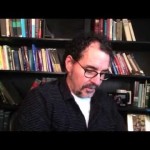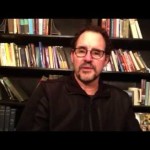We run our website the way we wished the whole internet worked: we provide high quality original content with no ads. We are funded solely by your direct support. Please consider supporting this project.

How To Seek Theological Truth
If we are really interested in embracing true beliefs, then the last thing we would ever do is to try and convince ourselves that we already embrace true beliefs. A genuine concern for the truth is simply incompatible with a concern to feel certain that one already believes the truth. If a person is really concerned with truth, they will try to examine their beliefs critically and go out of their way to confront evidence that has the potential to make them doubt their beliefs.
The rational way to go about deciding whether something is true is to assess the evidence and arguments for and against a truth claim and to base your level of confidence in its truth or falsity on the weight of these considerations. There really is no other way of rationally deciding what’s true or false. Of course the prompting of the Holy Spirit and the testimony of others whom we trust also play an important role in the formation of our beliefs, but these factors should complement rather than replace our rational assessment of truth claims.
Suppose you’re in the market to buy a car. You go to a used-car dealer and find a car that you like, though the dealer is asking more money for it than you think this particular car should go for. But the dealer adamantly defends his hefty price tag by making a number of impressive-sounding claims about the car.
Before you put your hard-earned cash down, you understandably are going to want to determine if the claims the dealer is making are true. And how would you go about this? You’d begin by entertaining the possibility that the dealer’s claims are false, either because he’s sincerely mistaken or (God forbid) because he’s lying. And then, if you didn’t know how to do it yourself, you’d get a friend or hire a mechanic to open the hood, get underneath the car, and do everything that was necessary to thoroughly check the car out.
Now suppose a lot more than your money depended on accurately assessing this dealer’s claims. Suppose your eternal welfare hung in the balance. In this case, wouldn’t you go even further and perhaps get five friends or hire five mechanics to check your car out? The more that is at stake in assessing a truth claim, the more intensely we work to determine if the truth claim is, in fact, true.
A reasonable person’s confidence that a potential belief is true (whether it’s a truth claim about a car or a truth claim about God) is in proportion to the strength of the evidence and arguments that support the belief compared to the strength of the evidence and arguments that count against the belief.
This is the pattern found in Scripture where we are told to seek wisdom, to search for truth, and to rationally consider matters. In fact, Proverbs 8 is about nothing other than this. So too, Luke declares that Jesus gave “many convincing proofs” to people that he had in fact risen from the dead (Acts 1:3). God clearly does not expect people to embrace beliefs without sufficient reason or to try to convince themselves of things beyond what the evidence warrants.
Adapted from Benefit of the Doubt, pages 34-70.
Image by notashamed via Flickr.
Category: General
Tags: Approaches to Theology, Doubt, Theological Method, Truth
Related Reading

Secret Doubt
J L via Compfight We don’t usually do this, but Jessica Kelley (Henry’s mom) over at Jess in Process wrote a piece about her struggles with doubt, and we got her permission to reprint it in its entirety. She perfectly represents the basic premise of Greg’s upcoming book Benefit of the Doubt. Thanks Jess! Secret…

Tips on what NOT to say to someone struggling with their faith
Neal Fowler via Compfight Here’s a post from a year ago from Elizabeth Esther on What NOT to say to someone struggling with their faith. Historically, the church has been a very unsafe place for people expressing doubts or struggles. Let’s be safer than this. From the blog post: “Don’t throw the baby out with…

In the Wilderness of Religion
Eric Bryan via Compfight There are an awful lot of us in the Church today who are no longer feeling at home in Evangelicalism. Regardless of how you feel about World Vision’s hiring policy decisions, the spectacle of thousands of people discontinuing their child sponsorships (relationships with flesh and blood children in need) because of…

Drum Roll Please: Greg’s Final Critique of Bart Ehrman’s Article
This is the ninth and final of several videos Greg put together to refute Bart Ehrman’s claims published in the article What Do We Really Know About Jesus? Thanks for hanging in there for this last one. I know it was a long wait, but the holidays got inordinately busy for Greg. In this segment, Greg talks…

Interview with Drew Marshall
Greg was interviewed by Drew Marshall on Saturday, November 2, on the topic of his new book Benefit of the Doubt, and we thought you might like to listen to what he had to say. You can find the interview here. Enjoy!

Why Bart Ehrman Doesn’t Have to Ruin Your Christmas (Or Your Faith) Part 8
This is the eighth of several videos Greg put together to refute Bart Ehrman’s claims published in the article What Do We Really Know About Jesus? In this segment, Greg gets into the nitty gritty of why portions of the birth account are not the dumbest lie ever. If you missed the first seven installments you can…
